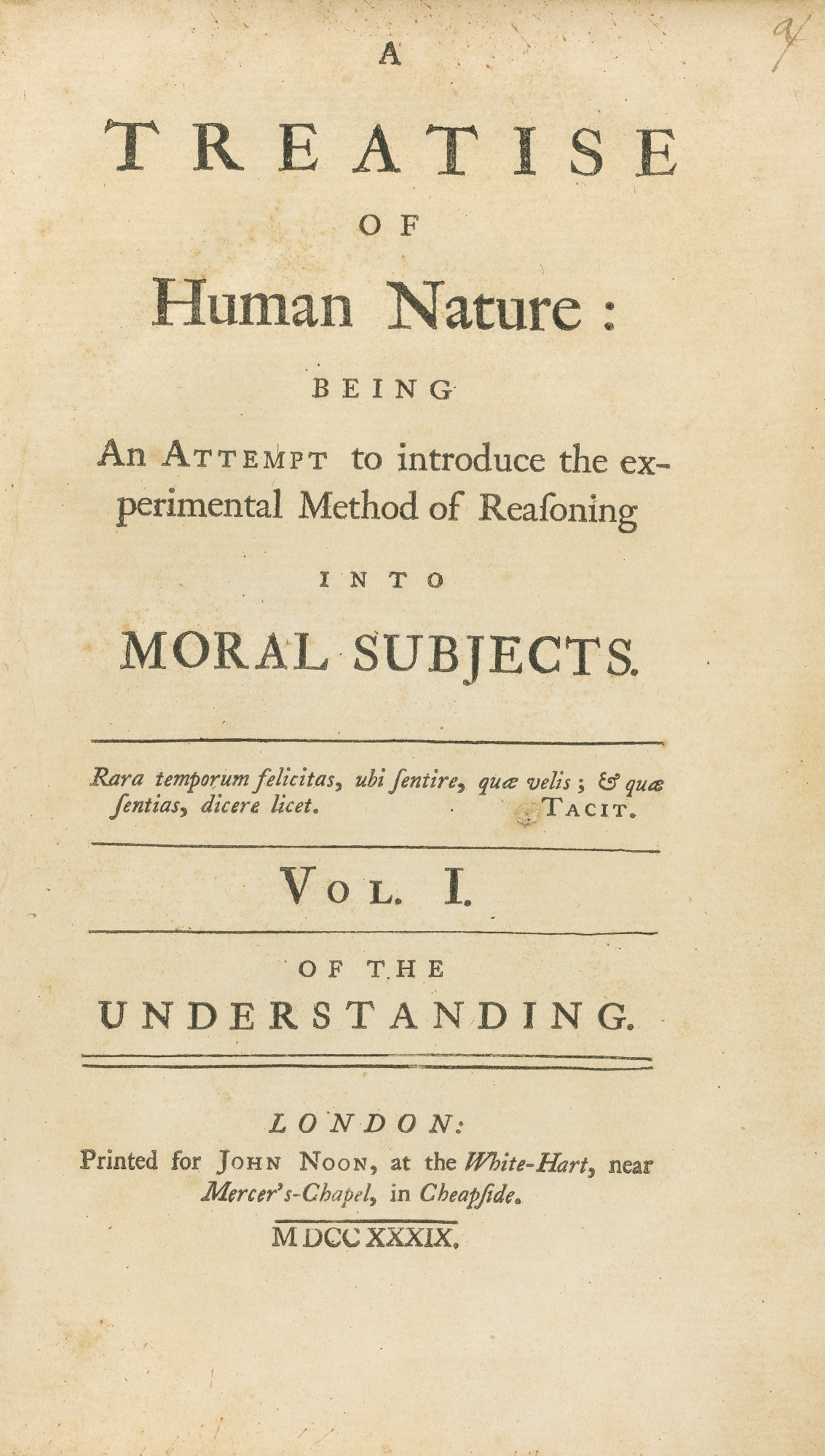
A Treatise of Human Nature
A Treatise of Human Nature: Being an Attempt to Introduce the Experimental Method of Reasoning into Moral Subjects (1739–40) is a book by Scottish philosopher David Hume, considered by many to be Hume's most important work and one of the most influential works in the history of philosophy.[1] The Treatise is a classic statement of philosophical empiricism, scepticism, and naturalism. In the introduction Hume presents the idea of placing all science and philosophy on a novel foundation: namely, an empirical investigation into human nature. Impressed by Isaac Newton's achievements in the physical sciences, Hume sought to introduce the same experimental method of reasoning into the study of human psychology, with the aim of discovering the "extent and force of human understanding". Against the philosophical rationalists, Hume argues that the passions, rather than reason, cause human behaviour. He introduces the famous problem of induction, arguing that inductive reasoning and our beliefs regarding cause and effect cannot be justified by reason; instead, our faith in induction and causation is caused by mental habit and custom. Hume defends a sentimentalist account of morality, arguing that ethics is based on sentiment and the passions rather than reason, and famously declaring that "reason is, and ought only to be the slave to the passions". Hume also offers a sceptical theory of personal identity and a compatibilist account of free will.
Author
Isaiah Berlin wrote of Hume that "no man has influenced the history of philosophy to a deeper or more disturbing degree".[2] Jerry Fodor wrote of Hume's Treatise that it is "the foundational document of cognitive science".[3] However, the public in Britain at the time did not agree, nor in the end did Hume himself agree, reworking the material in both An Enquiry Concerning Human Understanding (1748) and An Enquiry Concerning the Principles of Morals (1751). In the Author's introduction to the former, Hume wrote:
Regarding An Enquiry Concerning the Principles of Morals, Hume said: "of all my writings, historical, philosophical, or literary, incomparably the best".[4]
Influence and legacy[edit]
Hume's Treatise inspired Albert Einstein, who in a 1915 letter explained "The theory of relativity suggests itself in positivism. This line of thinking had a great influence on my efforts, most specifically Mach and even more so Hume, whose Treatise of Human Nature I studied avidly and with admiration shortly before discovering the theory of relativity."[5]